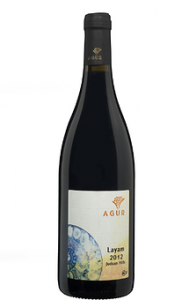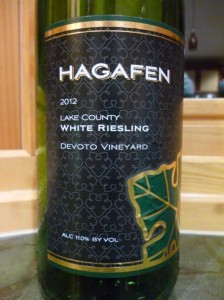Kosher Wines For the High Holiday Season
The Jewish High Holidays are approaching, and this year I am ready for the inevitable, biannual kosher wine questions (the other time is Passover, of course). There are myriad high quality, exciting kosher wines available on the market, and an answer for almost any wine need. Over the past few months I have run into a lot of kosher bottles showing surprising balance and finesse. Admittedly, many of the wines I will describe were, in fact, no longer kosher once non Sabbath observing me opened them to taste. Here is a quick rundown of the distinctions between Mevushal kosher and kosher:
Mevushal Wines are brought to a flash boil, making them unfit for religious ceremonies. This is convenient for Holiday dinner parties because they are kosher under any designation regardless of who opens and pours them. Some argue that Mevushal wines cannot reach the same complexity as traditional wines. Perhaps they are right, but most people seeking out kosher wines for the high holidays are not looking for pieces of art, they are looking for easy-to-like, affordable wines and there are plenty of headache-free Mevushal options. The catch-22 with Mevushal wines is that they are kosher under all circumstances because they have been made unfit for religious purposes by flash boiling them. Despite being approved for the kosher consumer, it is somewhat counterintuitive that we drink them almost exclusively on holy days.
Kosher wines that are not Mevushal pose a bit of a problem for my mostly secular family. In order to be considered kosher, Sabbath observing Jews must carry out all steps from viticulture to service. The only exception to this rule is labeling and handling the bottles after the corks are put in, but before they are opened. For families like mine, drinking certified kosher wine on holidays is something we do because it feels appropriate, knowing full well that by the time the wine reaches our glasses it will be nothing more than high quality wine made by a Sabbath observing winemaker.
One aspect of non-Mevushal, kosher wines that matters to us is that they are never fined with additives derived from meat or dairy products. And so, at the very least, kosher wines can be “safely” served with either meat or dairy meals.
The Wines:
My mother’s side of the family loves New Zealand Sauvignon Blanc. So we will be drinking 2012 Goose Bay South Island Sauvignon Blanc. Goose Bay does a fantastic job making a Mevushal option that is indistinguishable from its non-kosher counterparts. It is a down-under zinger with the expected hits of tropical fruit and fresh cut grass.
The single most exciting Mevushal wine that I have tasted this summer is the 2012 Hagafen Rieslingfrom Lake County California. Lake County is a wonderful up-and-coming region just north of Napa Valley that so often misses out on the praise it deserves. Hagafen Riesling is an underdog wine to say the least. California Riesling is often a tough sell, especially from lesser-known areas like Lake County and being kosher and Mevushal is no help. But the 2012 Hagafen is a wonderfully balanced wine. It is zesty and ripe with a lime-like acidity and the gentlest touch of sweetness. It is fantastic with dishes that have a touch of sweetness (raisin challah anyone?). It also pairs expectedly well with spicy food and whatever multitude of hors d’oeuvres your relatives might bring.
In the realm of reds, I was quite impressed by the 2011 Chateau La Clare. It is young, and tight as any 2011 left bank would be, but Chateau La Clare seems to know its audience. There is a touch more approachability and ripeness than expected, making it more ready to drink while still being “classically old-world”. I like the hint of toast and textbook Bordeaux minerality.
I am also a fan of the quaffable 2012 Baron Herzog Jeunesse Cabernet Sauvignon from California. It is, as many would guess, heavy handed and full-bodied with notes of dark jam bursting fruit. Despite having an expectedly large and fruit-forward body, the 2012 has a hint of tart, raspberry-like structure that is both surprising and welcome. I might look past it as a paring for haut-cuisine, but for the high holidays it serves its purpose beautifully and certainly outperforms other Mevushal cabs in the $10-$15 price range.
This summer I have tried to keep my non-Mevushal kosher wine consumption concentrated in Israel. I have tremendous respect for kosher brands around the world (shout-out to The Covenant Cabernet that makes a fantastic, bold Napa Cab every year). That being said, Israel is a beautiful wine-producing region that is often left out of high-end conversations.
Agurin the Judean Hills makes several beautiful red blends. The 2012 Agur Layamis a deep blend of Syrah and Mourvedre that beautifully incorporates an appropriate oak regimen into deeply concentrated fruit and surprising acidity, given the ripeness. This is a bold, Languedoc / Roussillon style wine that is rustic enough to speak of place instead of imitation.
The 2011 Agur Kassem is a Meritage blend with much more structure and hints of white pepper and a sort of polished stone minerality that nods to Bordeaux. It is strikingly different from the Layam and more suited to pairing than quaffing. I would sway towards the Kassem if you are pouring wines with a specific course, but not if you are pouring at the beginning of the meal.
The 2012 Gamla Chardonnay is also a nice value and a fantastic expression of Israel’s potential as a wine-producing region. This is a crowd-pleasing, medium-to-full-bodied chardonnay with gentle creaminess and a sweet, pleasant finish that reminds me of golden delicious apples.
You can also never go wrong with bubbles and Laurent Perrier is one of the world’s most well-respected champagne producers. Their standard Brut NV is tart, complex, and delicious…. and also happens to be kosher.
Finally, I feel obliged to mention Shvo, a tiny producer in the Upper Galilee despite the important fact that their wines are not certified kosher. Shvo does not fine or filter their wines, making them acceptable to my family with either meat or dairy. I only mention them because, in my summer of Israeli wine exploration, the 2010 Shvo Chennin Blanc is perhaps the most intriguing Israeli wine I have tasted. It is wonderfully complex with a tart, earth-driven flavor profile speckled with flashes of ripe peach and toasty cream. I could not in good conscience leave it out and, for what it is worth, I will be opening a bottle late night, after break-the-fast.
Happy new year, everyone! L'chaim!



